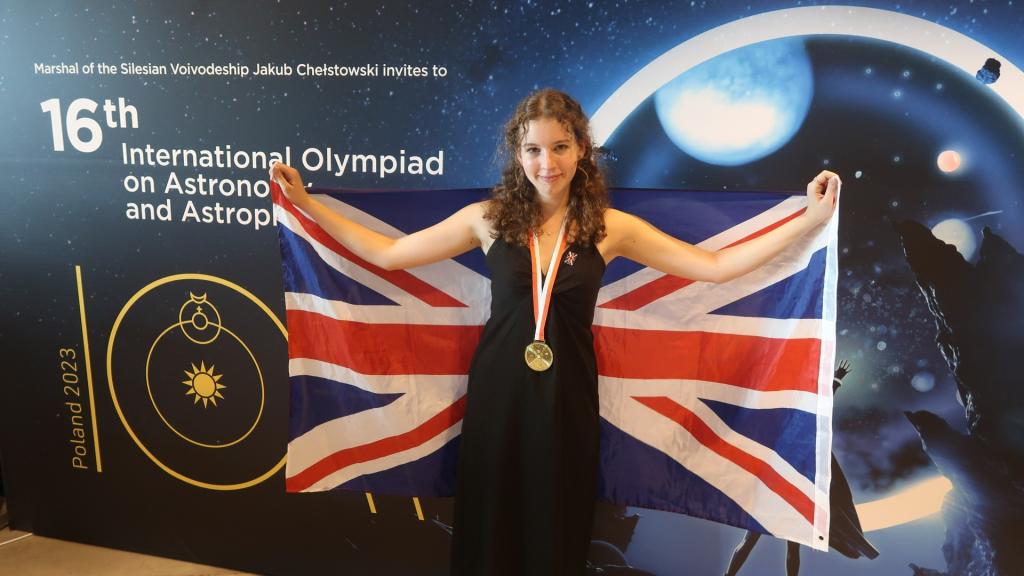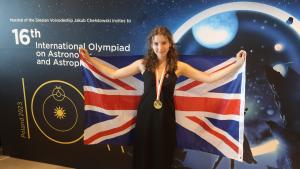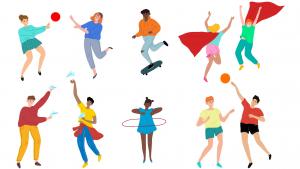Earlier this year, Charlotte, a student at King’s Maths School in London, attended a selection camp for the UK team for the International Olympiad on Astronomy and Astrophysics (IOAA) in Poland. In this blog, she tells us about her experience.
Ever since I was little, I have been fascinated by the universe – by the very biggest, smallest, and oldest parts of it. I can remember struggling through Stephen Hawking’s ‘Brief Answers to the Big Questions’ at about thirteen and feeling, for the first time, a sense of sheer awe at how incomprehensibly vast and complex our cosmos truly is. This is why I have always wanted to go into physics: to attempt, no matter how successfully or not, to gain a greater understanding of the physical laws which underpin everything we experience.
My passion for STEM led me to study at King’s Maths School, a maths specialist sixth form in Central London. Since all students were required to do maths, further maths, and physics at A-Level, a passion for these subjects was shared by everyone at the school, students and teachers alike. Perhaps due to this, and the school’s small size (around 75 students per year), there was a very strong sense of community. Collaboration was strongly encouraged both inside and outside of the classroom – I would often spend whole lessons working through problems at a whiteboard with a friend. This meant that I quickly became confident articulating my ideas and engaging in classroom discussions. I learned so much not just from my teachers, but from my fellow students, and made some incredible friends that I’m sure I’ll keep in touch with for years to come. All students were continually encouraged to contribute in lessons, meaning no one was ever neglected or left behind, and there was a huge amount of academic and pastoral support available if needed. While it was a shock moving from my all-girls secondary school to one where girls were in the minority amongst the student body, I had a lot of female friends in my classes as well as some amazing female teachers. Due to this and the collaborative atmosphere, I never felt outnumbered or uncomfortable due to my gender.
King’s also offered a huge range of extracurricular opportunities. We all completed group research projects throughout year 12, on topics ranging from quantum physics to AI ethics, and in year 13 we were able to take optional courses which covered subjects we never would have been able to learn about in our A-levels. We also had the opportunity to take part in a variety of maths, physics, and computing Olympiads (essentially national competitions involving long and difficult exams). I always took these not expecting anything, thinking of them merely as good practice for A-Levels – so I was incredibly surprised when, in early year 13, I was invited to a selection camp for the UK team for the International Olympiad on Astronomy and Astrophysics (IOAA), which was taking place in Poland that summer.
The camp was really intense – I had never learned so much in such a short period of time. There were fourteen students competing for five places on the team, and we essentially spent every day from 9am to 9pm in lectures. I remember sitting in every class just feeling completely out of my depth – everyone else seemed to be racing through the problem sheets while I was struggling with the first few questions, people were mentioning concepts I’d never heard of before as if they were common knowledge, and I don’t think I spoke up in class more than two or three times across the whole week. It was interesting to think about how much of this was down to the gender imbalance – out of the fourteen of us, there were only two female students. We were both among the quietest in the group and would almost never contribute to classroom discussion, where the most confident male students seemed to have no problems voicing their opinions. The vast majority of the teachers were also male, and although everyone was lovely it was difficult not to feel, at least on some level, that I was out of place.
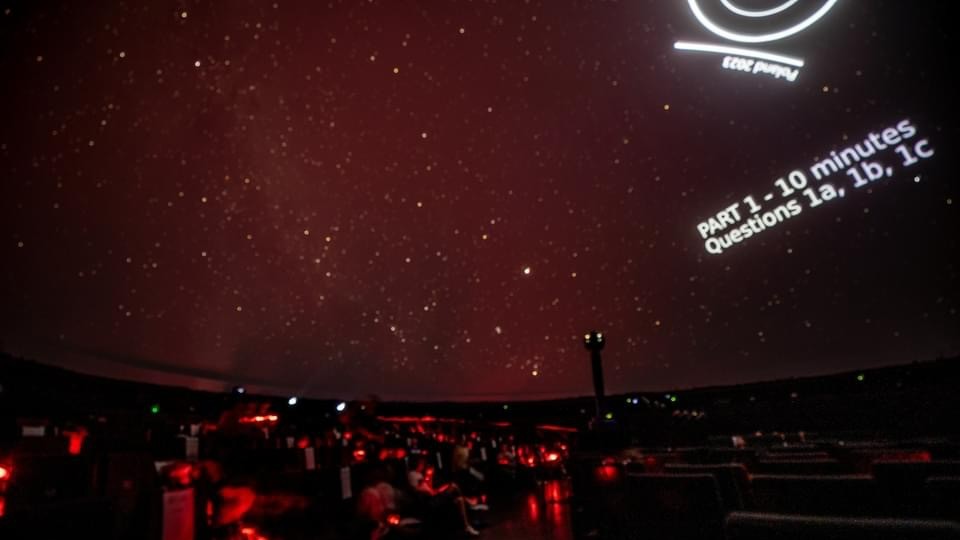
The camp ended with a final round of exams, which would be used to inform the selection of the UK team. I got the train home and just processed everything – the camp had taken me well out of my comfort zone, but I had learned so much, and met so many great people. I was almost certain that was the end of my IOAA experience, since I had felt so behind all week and the exams hadn’t gone too well. However, a few days later, I got the email that I’d been selected for the UK team!
Baffled but incredibly excited, I accepted my place. What followed was 4 months of staring forlornly at endless Wikipedia articles; memorising a ridiculous number of galaxies, nebulae, and stars; and trying to convince my school teachers that learning about cosmology was an effective way of revising for A-Level maths exams. The training process was mainly online, and was reasonably self-guided – we’d receive assignments on a range of topics within astrophysics and read up on the content by ourselves before completing a set of problems.
Although this was a lot of work on top of A-Level revision, and the questions were often very difficult, I really enjoyed the process – our team leaders were always on hand to answer any questions we had, and the content itself was incredibly interesting. Even though I was the only girl on the team, the smaller group environment made me feel far more comfortable expressing my thoughts, and I quickly grew in confidence when I saw that my ideas were just as well-received as those of my team members. The atmosphere amongst everyone on the team was friendly and supportive, and I began to love discussing the assignments and sharing resources with my team members – it never felt like we were competing against one another, but like we were all working together.
Just before the actual competition took place, we had a final five-day training camp in Cambridge. I found this camp far more laid-back than the first one; it was a much smaller group and we all somewhat knew each other by then. The timetable was intense – one night we were up past 2am doing a mock telescope exam! However, we also got time to go punting (which may or may not have involved accidentally knocking a small child into the River Cam), eat lots of good food, and explore the city. It was lovely to spend time not only with my team members, but also our team leaders, who were mainly older university students – they had all done the IOAA before us, and it was really inspiring to hear about their experiences and see how well they were doing at university afterwards.
The main purpose of the second training camp was to complete a round of mock exams as practice for the real ones we would sit in Poland. I was incredibly nervous going into these mocks – I still felt as if I didn’t deserve my place, and so I felt I had to do really well to prove that I deserved to be on the team. I think being the only female definitely contributed to this: my performance felt (at least to me) like a reflection of the general performance of female students in maths and physics, and so I placed a lot of pressure on myself to show that girls could excel in those areas.
I sat the mock five-hour theory exam and completely freaked out: it felt like everything I was writing was completely wrong, and I was working too slowly, and I had no idea how to answer anything. I kept thinking that I had to do well, and it just made me more and more panicked. When we got our marks back for all of the papers, I had the worst marks of the team. I knew I could have done so much better if I’d just relaxed a little more – so I decided that in Poland, it didn’t matter too much what medal I got. I resolved to make the most of being there, get to know as many people as possible, and just enjoy the experience. Two days later, we were off to the airport – and the competition began.
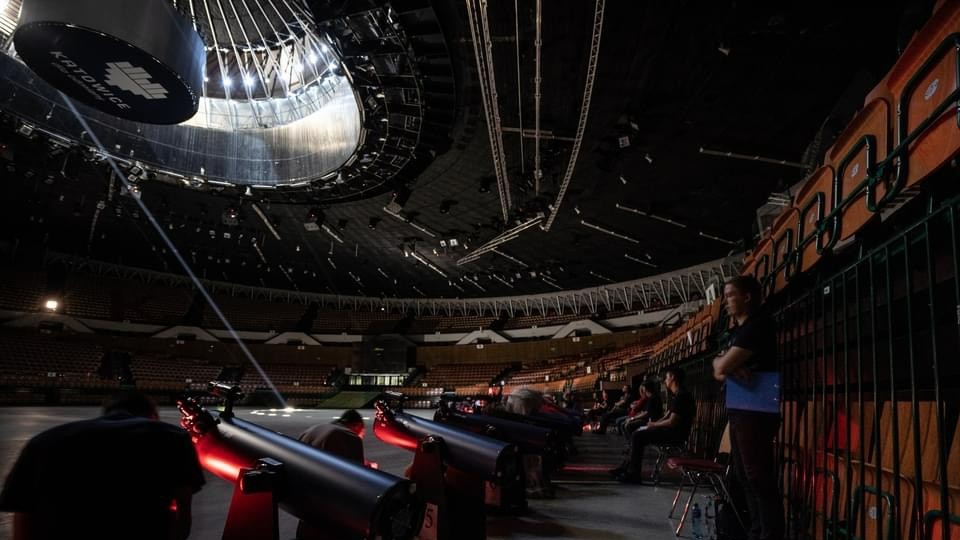
I don’t think I’m exaggerating by saying that the week of the competition was one of the best weeks of my life. Although preparing for and sitting the exams took up a considerable portion of our time, we had lots of opportunities to mingle with other students from all across the world, explore the local area, and generally just have fun. I’m not sure I will ever find another place in which young people of so many different nationalities and cultures could interact so freely and so wonderfully – including the UK there were 50 countries competing, and everyone was super open to having a good conversation.
I had some truly incredible discussions with students from places including Iran and Kyrgyzstan, on topics ranging from Eurovision to the meaning of life, which helped me to appreciate just how different yet strangely similar my own experiences have been to those of the other students. I quickly realised how fortunate the UK team was to be supported as much as we were: some students were required to fund their own transport to Poland or prepare for the competition entirely by themselves. The ambition and motivation of the other students was astounding, and I felt continually inspired by everyone I had the opportunity to talk to.
We got lots of opportunities to have fun – some highlights included performing ‘Man’s Not Hot’ by Big Shaq at ‘cultural evening’; learning poker with people from Canada, India, and the Philippines; losing horrifically at bowling to students from Serbia, Greece, and Slovenia; and beating at least 20 people at Dobble. One thing that made the trip really special was that, to avoid cheating, we weren’t allowed to have our phones: this made it far easier to be in the moment and properly engage with everything that was happening. After being away from my phone for a week I felt so much more relaxed, and so much happier – and resolved to cut down drastically on my screen time when I got back to England – although I haven’t done this nearly as much as I would’ve liked!
The exams themselves were hard but enjoyable. There was a five-hour-long theory exam, a three-hour-long data analysis exam, and two shorter observation exams – one involved using telescopes in a huge, dark sports stadium, and one was in an incredibly fancy planetarium. After taking all of them I thought I’d done okay but not too well: I was hoping for a bronze medal, or a silver if I was very lucky. It was therefore shocking to find out, a few days later, that the whole UK team had achieved gold medals! This placed us first out of the 50 participating countries and meant that we were the highest-performing UK team in any International Science Olympiad ever. I came third within the UK team, and sixteenth in the world – but I think what I’m most proud of is being the first state-educated female student to ever win a gold medal for the UK.
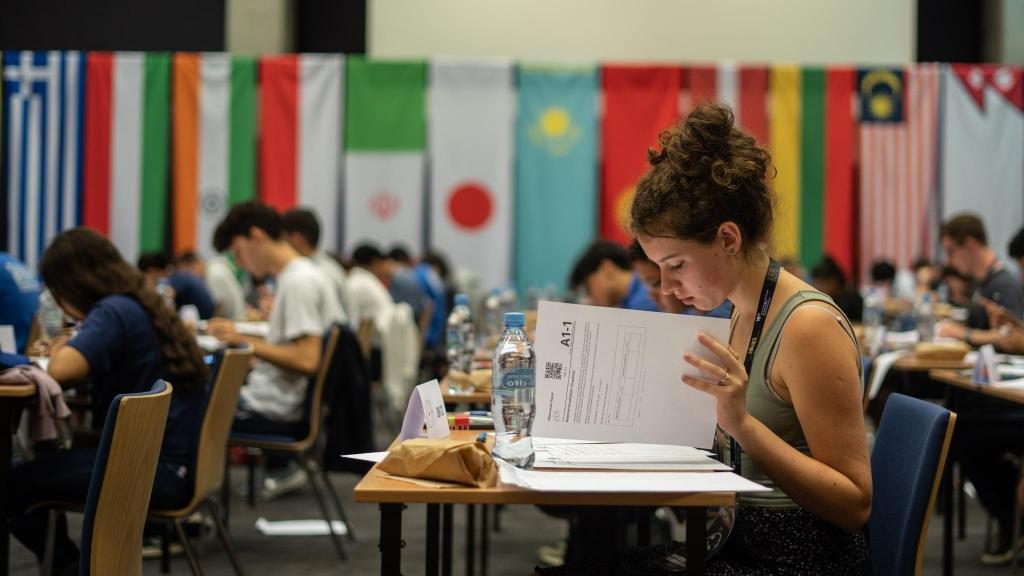
Whilst taking part in the competition was an incredible experience, I couldn’t help but notice once again how severe the gender imbalance was among the students. Out of around 240 participants, only around 40 were female – and although it was very enjoyable to smugly stride past the huge queues for the men’s bathroom into the empty women’s bathroom before every exam, it was also strange and sort of sad to be constantly outnumbered to such an extent. Everyone there was lovely, and no one ever made me feel uncomfortable or out of place, but I kept questioning why there were so few girls – and how we could change it.
Looking back, what really encouraged my passion for STEM was the female role models I had growing up: seeing women thrive in positions of academic authority, as teachers or leading researchers, was incredibly motivating. It is so important for young female students to know that there are others like them who have achieved their dreams, and so I think emphasising the achievements of women and girls in STEM-related fields is vital. It would be incredible to have female role models visit schools and actually meet students in person to talk about their experiences – to show that they are real people too, and not just names.
Beyond this, fostering environments of collaboration and support within classrooms is super important: it allows girls to develop confidence by expressing their ideas in casual, small-group situations, and form friendships with their peers which will then help them to feel more comfortable sharing their ideas with their whole class. Helping everyone to feel comfortable in this way should reduce the possibility of classroom discussion being dominated by only a few students, and thus allow less confident students to have a voice too.
Physics is a truly amazing field, and I’m looking forward to pursuing it further by studying Physics and Philosophy at Oxford this year. Taking part in the IOAA this summer was one of the best experiences of my life – I will never forget the people I met, or the lessons I learned. Access to competitions like the IOAA, and to the study of physics in general, should never be subject to your gender – and work must be done in schools to ensure that young women and girls feel comfortable and confident enough to contribute, and ultimately excel, in STEM subjects.
I would like to finish with some words for younger female students. Your thoughts and ideas are just as worthy of being heard as those of your male peers – try not to let yourself feel bossy, or annoying, for sharing them. If you ever feel confused or behind in a classroom environment, don’t suffer in silence: chances are other people are feeling exactly the same way.
Be the person who asks the questions everyone else is thinking – you’ll learn so much more effectively. And finally: take as many opportunities as possible, even if you don’t think you’re good enough. I guarantee you’ll surprise yourself.
